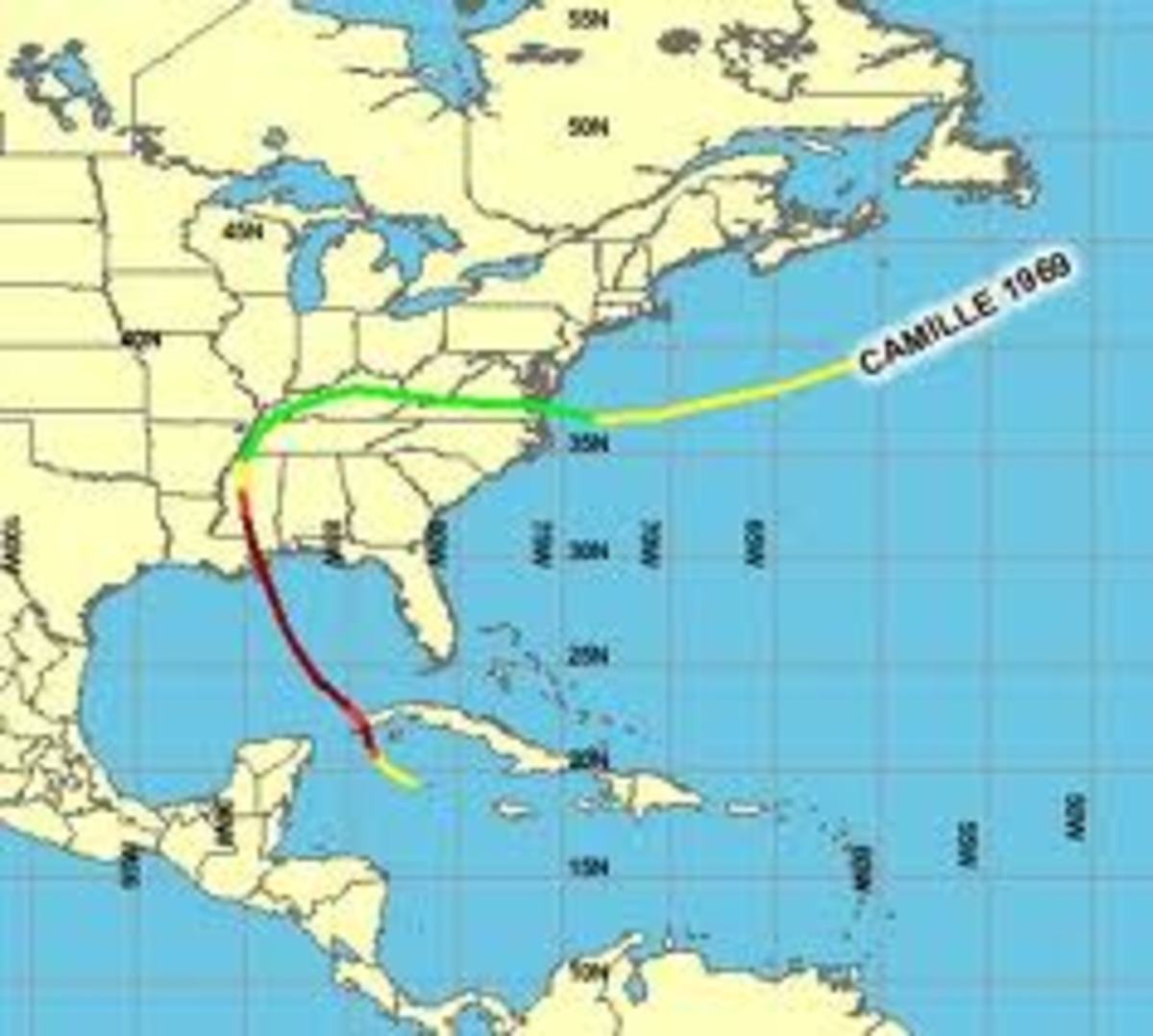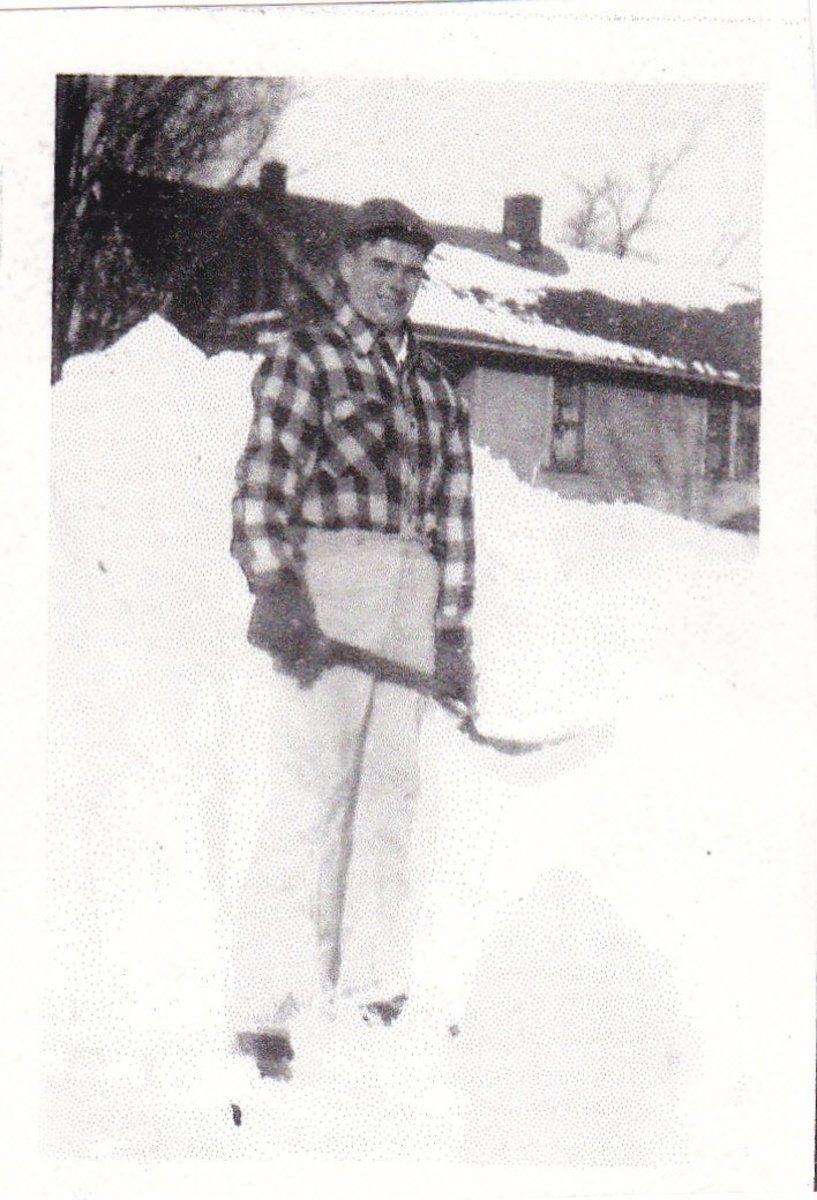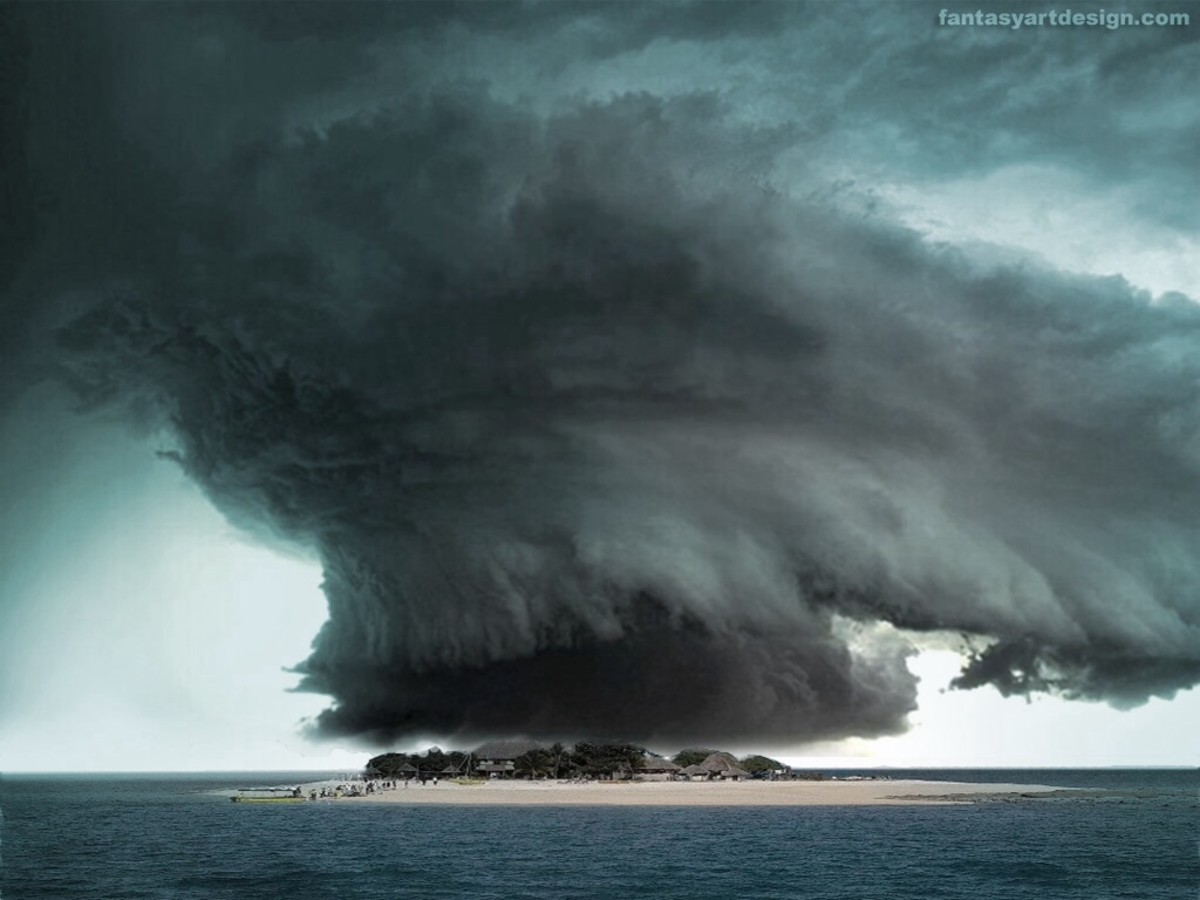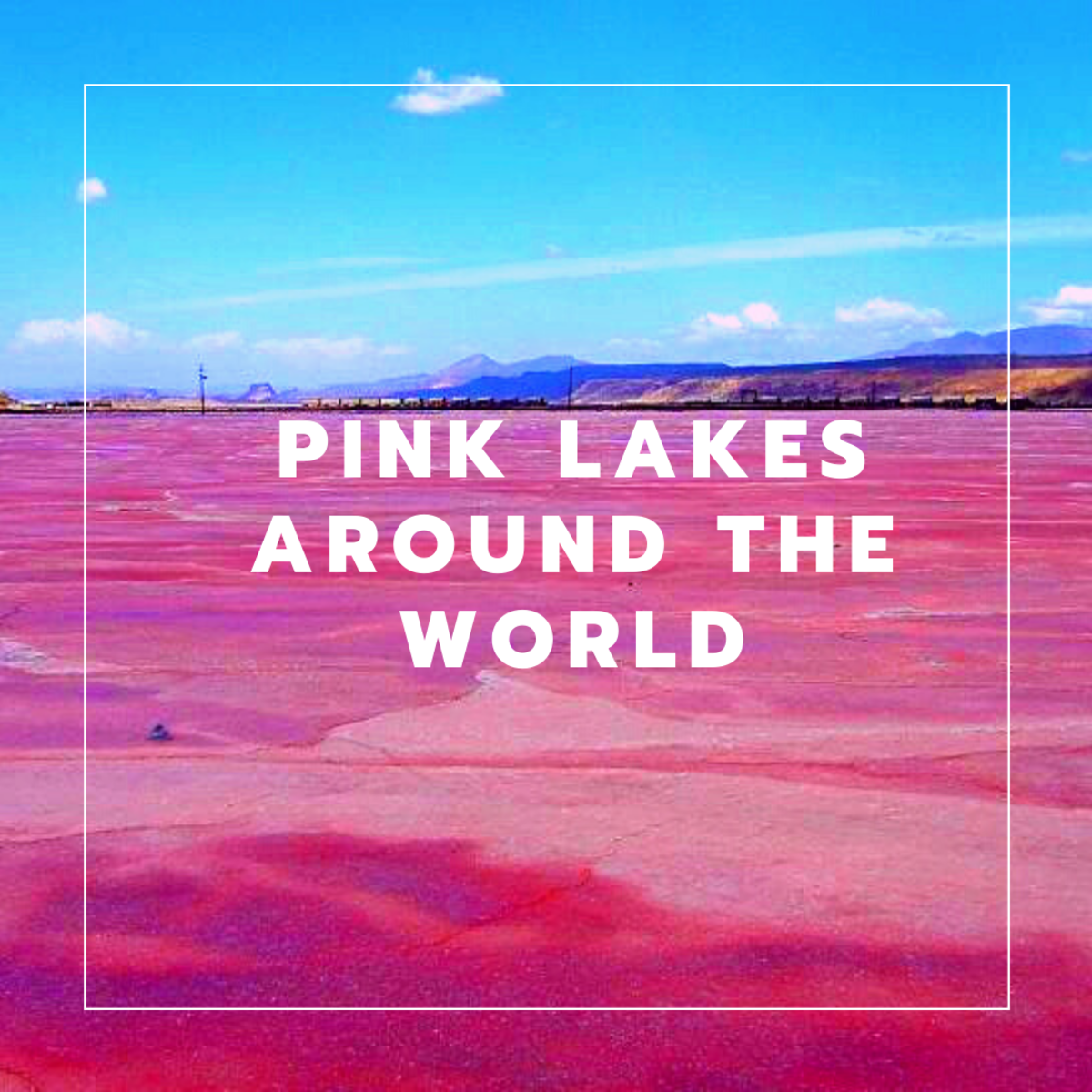Twenty things I learned from Hurricane Matthew
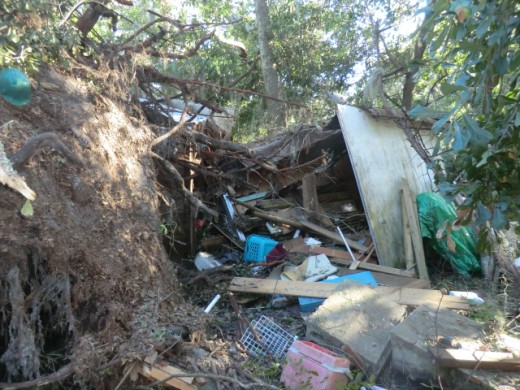
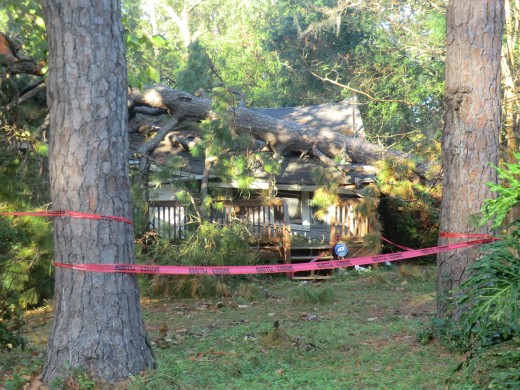
Let the news make mention of a hurricane or tropical force winds and the first thing everyone does is buy milk and bread!
I don't know exactly what it is that possesses people to stock up on essentials and non-perishable foods just before a massive storm is predicted to doom us for all eternity, but there seems to be an innate need to hoard food, even the perishable kind before major weather events threaten to keep us locked in the house or send us seeking shelter with friends and relatives outside the path of predicted destruction.
Five days before Hurricane Matthew hit, people were out in mass at the grocery store, even before they hit the hardwood store for plywood, camp stoves and generators. We were all hoping for a near miss, so our main concern was filling the tank with gas and getting enough groceries to tide us over for two weeks just in case we lost power.
I had planned to grocery shop early Wednesday morning, two days before Hurricane Matthew hit, and get more food for the animals at the feed store as well, but when I had to emergency evac the larger animals, I wasn't able to get to the store until Wednesday night and by then just about everything I wanted, everyone else had wanted more and stripped the shelves clean.
There were people pushing around carts full of toilet paper, bottled water, chips and things we normally would not eat on a health conscious diet, like canned cheese and meat. The peanut butter aisle only had the gross stuff left that was composed of fifty percent sugar and palm fat that left a scum of oil on the roof of your mouth long after the paste had dissolved and the bread aisle looked like someone had swept through and cleaned all but the English muffins and a few squashed hotdog rolls behind. It was pathetic.
You tell yourself you are prepared for the storm, but you are only prepared for a lot of wind and rain. Few of us are really prepared to the point of having all our medication (if we take it) our important tax documents, backup addresses and phone numbers of friends and relatives, social security cards, insurance papers, baby photos, wedding pictures, etc. where we can toss them in a water tight container and take them with us just in case we come home to a pile of ash or rubble.
Still, whether you have all your documents in a row with enough food and water to rival the Red Cross aid stations, the following are a few things you might need to know in case you have to deal with a natural disaster.
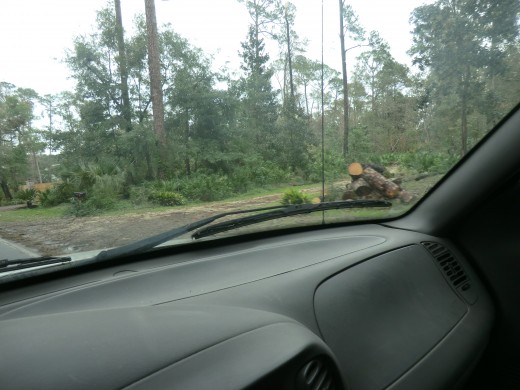
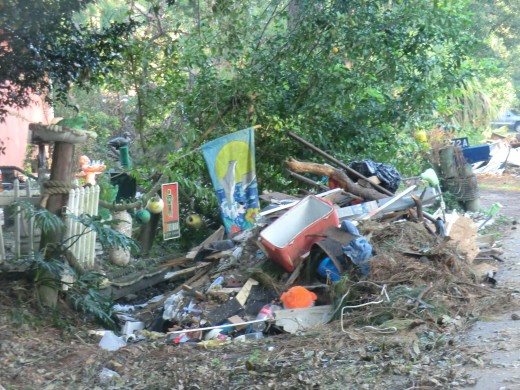
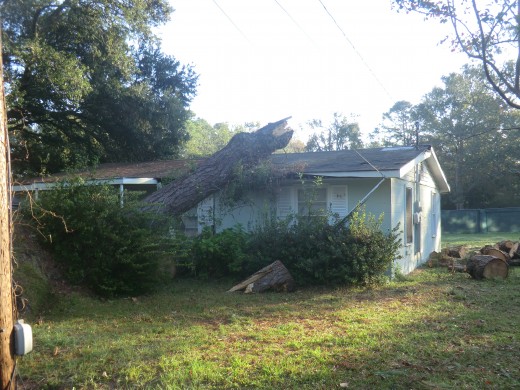
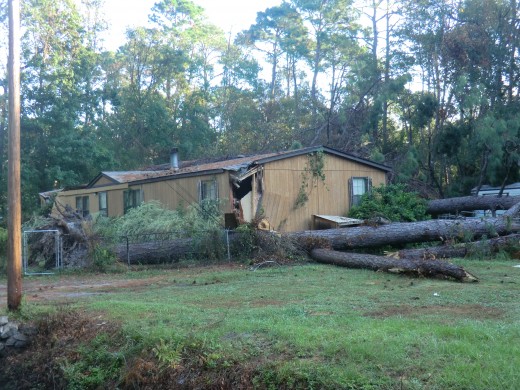
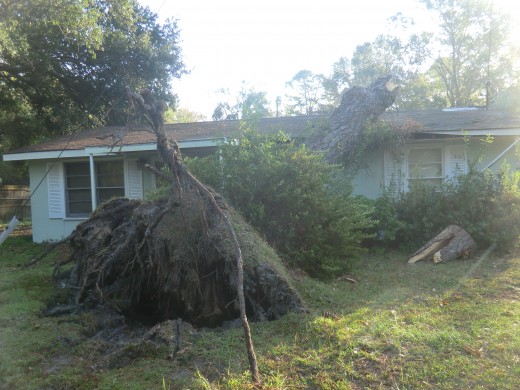
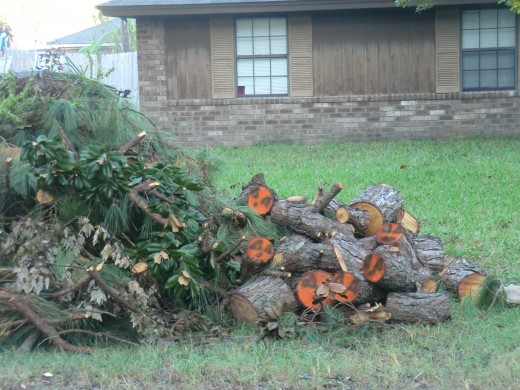
The top twenty things I learned from Hurricane Matthew
- There are basically two kinds of people: those who panic and plan months in advance, buying generators, stocking up on food and putting together an arsenal of survival gear.
The second type throw caution to the wind and coast by without any real clue what they will do in an emergency situation, often stocking up on beer and beef jerky and putting the dog house up on concrete blocks just in case. The latter is most likely to escape major catastrophe while to former has their house blown apart nullifying the need for the generator. You are best served to fall somewhere in the middle category and have a plan, but don't panic. - Having a background in scouting, being raised poor and/or living in the backwoods comes in handy. We can make a fire and keep it going, boil water on a handmade spit, pull the old stove grill out the trashed oven we've been meaning to take to the recycle center for the past five years, and haven't gotten 'round to it, and flush the toilet with rainwater we collected in five gallon buckets which we used earlier in the season to grow tomatoes in.
- People who sarcastically say they are planning drinking parties on the night of the hurricane and post pictures of overturned chairs and mock the weatherman's dire prediction of disaster are just as likely to run for the hills as anyone else when winds are predicted above 100 mph. You are not a wimp for leaving town. It doesn't matter what anyone else thinks; staying safe is job one and you are wise to take precautions within limits.
- Stuff is not as valuable as you are. Stuff can be replaced. You cannot be, but it never hurts to have an emergency stash in a plastic container with all your credit card information, health, insurance papers, phone numbers of people you need to contact, prescription refills and birth certificates and family photos just in case you come home to a vacant piece of property where your house once stood.
- If you have pets you need to have pet carriers for each of them or a means to crate/trailer them to safety. If you don't have these things, you need to make nice with people who do and learn the fine art of crying and begging and volunteering your first born if they will only help you get your pets to safety. You may only think you are going to be gone for a day, but it could take a lot longer so advanced planning comes in handy.
- Make sure you have a cupboard full of food even when no storm threatens. Soups, stews, juice, bottled water, extra batteries, canned meats, crackers, peanut butter, a week's supply of bread and non-refrigerated boxed milk or milk substitutes in individual packages are invaluable and if a storm or natural disaster does not come and you don't use your supplies, you can always donate them to a food shelter or disaster relief organization before they expire. Win/win.
- Six, quart sized bottles of water filled three inches from the top and frozen in your freezer will keep your food frozen for 50 hours and partially frozen for another fifty or more if you do not open the freezer to take anything out.
- Putting a cup full of water in the freezer and then placing a coin on top of the frozen water is a great way to determine whether anything thawed and then refroze. If the coin is on the bottom of a frozen cup, you need to toss everything out and start all over. If it's just a 16th of an inch further down, you are probably safe to keep using the food.
- If you have any frozen fruit juice, ice cream or frozen fruit pops, make sure the container is upright or placed in another plastic container as if they do thaw, they will run down into your refrigerator and make a real mess. Bloody meat will do the same if not tightly packaged.
- Filling your washing machine and bathtub with water will give you enough reserves to get by for two weeks or longer. Use rain water collected in tubs or buckets to wash feet and hands or water pets like chickens who are not negatively affected by standing rain water.
- If you are going to get out of town, leave two to three days before the storm is to arrive and leave early in the morning taking back roads over major highways. Be prepared for multiple stops by law officers trying to make traffic run more smoothly while slowing it down considerably. They mean well, don't get angry with them and offer a wave of thanks rather than the bird finger. They are just doing their job the best they can.
- If you have the resources, go on vacation and enjoy yourself, but don't post the pictures on facebook or brag about what fun you are having until at least two weeks after the storm if you don't want people to attack you for being heartless and uncaring for people who have lost homes or are stuck in a shelter.
- If you are poor, but have a vehicle, call a relative and ask if you can stay with them or check out a campground. Take more clothes than you need. It may be a while before you can get back in town and save your cash for when you return as most stores do not take checks or credit with computers down. Use credit cards when you are away to keep track of what you spent.
- If you do leave town, make reservations. You may think you are smart by going to some obscure town with two hotels in it, but 10,000 other people are probably thinking the same thing. Be prepared to drive further inland than you planned, especially if the storm is affecting multiple states.
- If you don't have one, get a cell phone with unlimited data. It may be hard to check the news of home when you are staying away and chances are the information you get from friends and family who stuck out the storm or returned early will help you to know when it is safe to get back to town and what route to take to get there.
- Staying on a diet is probably not going to occur. Most of the people preparing for a storm spent a good deal of money on comfort food they would not normally allow themselves to eat and ate it before the hurricane hit. This is okay, but make sure you have lots of fresh fruits that hold up well on trips and hit the salad bar at least once a day if you are eating out at restaurants. Your bowels and your waistline will thank you for it
- If you stay with family or friends, take them out to dinner at least once to say thanks and pay for it. If you can afford it, leave some money behind for them or send them a nice thank you gift telling them how much you appreciated their help. If you can't afford to give a monetary gift, offer to help cook or clean or child sit for them and if you can't do any of that, be a gracious guest and don't demand things that cause them more work.
- Before returning home, make sure you have plenty of gas in the tank, food for the animals and food and drink for you. You could still be without power and stores could be closed for several days. Take a cooler with you and fill it full of ice about two hours from home. If you wait until you are an hour away, chances are all the ice will be sold out with others returning with the same thought you had!
- Be nice to road crews, electricians, phone and cable companies when you get home. There are going to be delays. Most companies have phone messages to let you know when power and utilities will be restored and most websites allow you to post to see if you are the only one on the block who still does not have modern day conveniences. As a general rule, electricity will be restored in about one week, cable in two to three weeks and home phone and internet service within the month. If the phone and cable companies do not offer you a discount, remind them it is not fair to pay for services that were not rendered, but try to be nice about it, no matter how tempting it is to do otherwise!
- Obey curfews and drive slow. Often roads are damaged, traffic lights are out and utility workers and yard cleanup crews are busy trying to restore order, so it is a good thing to drive cautiously and pay attention to your surroundings. Road crews cleaning up downed lines and limbs can easily drop something off the back of a truck, so if you drive cautiously you can avoid further damage than when you are impatient.
Be grateful for the little things and learn to say, "I'm sorry" but try not to do anything that merits using those words in the first place!
Driving in a car with your family, pets, kids, friends, even strangers on a bus headed to who-knows-where and staying in a shelter where you don't have a choice in food or type toilet paper or even facilities to wash-up in can take a toll on your nerves, but try to be nice and remember that everyone has to compromise, not just you.
Everyone is going through some sort of stress, even your hosts if you are staying with friends or the hotel clerk who is inundated with calls asking if they have vacancies. Try to treat others by the Golden Rule - "do unto others what you would want done to you".
If you get irritated or are tired of someone telling you that you are driving too fast or taking the wrong road when your GPS tells you to go another mile before turning; be polite and tell them, "well, let's follow the directions and if that does not work, we can come back and try your route, okay?" Chances are they are not criticizing you, they are just trying to help get there faster so everyone can get out, stretch and take a break.
Try to keep conversation light and be mindful of others preferences for music, air temperature, smells, etc. When you have arrived at your destination or after the storm is over, you can get away from them a little while and have some quiet time, so take it easy and try to make the best of it and learn more about them and yourself and try to correct old, bad habits and be a gentler, kinder you if you find yourself getting too grumpy.
Chances are you will come out of the experience a little wiser, knowing more about the people around you and sharing information that will bring you closer together and make you grateful for the kindness of both family and strangers.
If you did not sustain any damage from the storm, volunteer to help others that did. There will be plenty of opportunities from clothing and food collections, to clean-ups and helping deliver groceries to shut-ins. If you have children, get them to help. That way everyone will benefit and your kindness will encourage others to share that kindness and give back to others as they are able themselves. No matter how bad things may seem, they are usually a precursor to greater blessings as long as you set your sights forward and continue to have hope and share that hope and love with others.
If all else fails, you will have a lot of stories to tell and a lot of people who will share similar experiences which will bring you closer to people and make you more empathetic to their struggles by having gone through struggles of your own. It's not all bad and you will recover. As long as you stay positive and look for the good in the situation, you will find it is easier to focus on the things that really matter and be grateful for the opportunity to help others and humble enough to receive help when you need it yourself.


